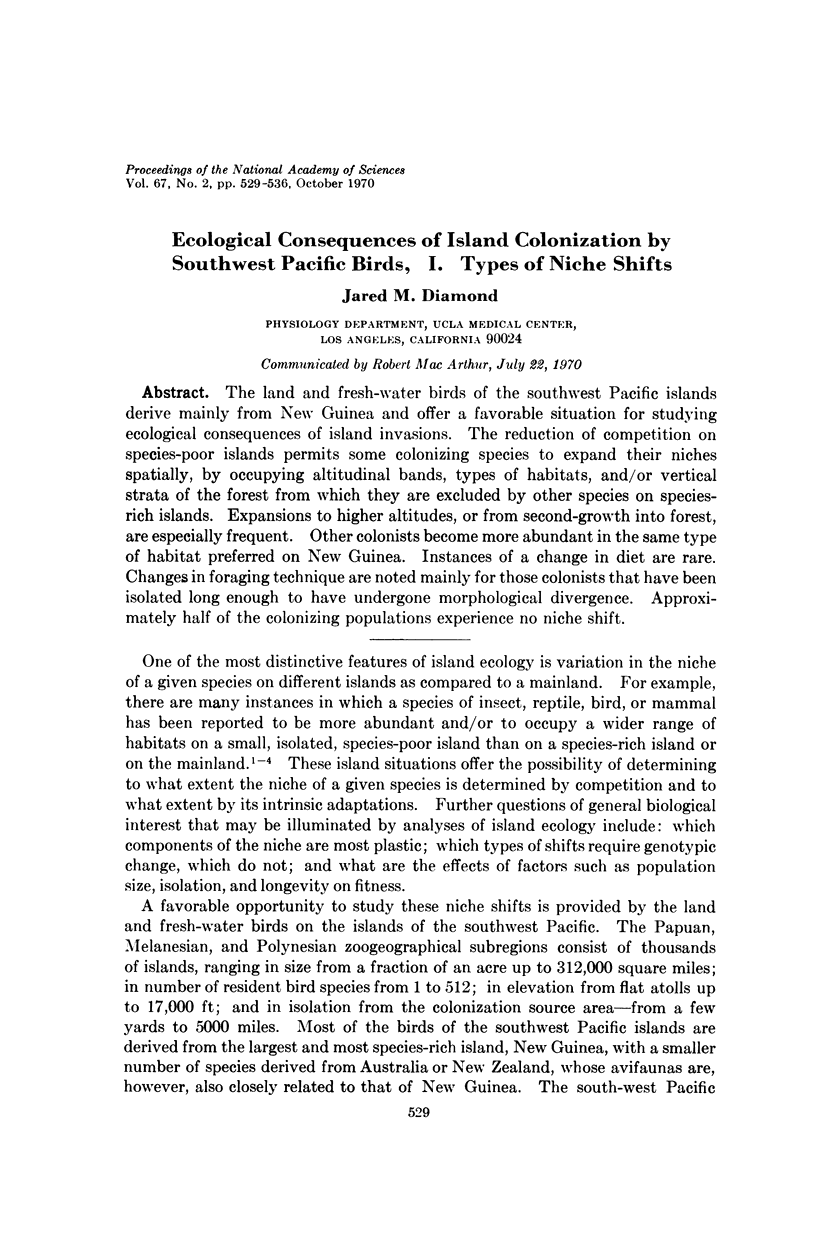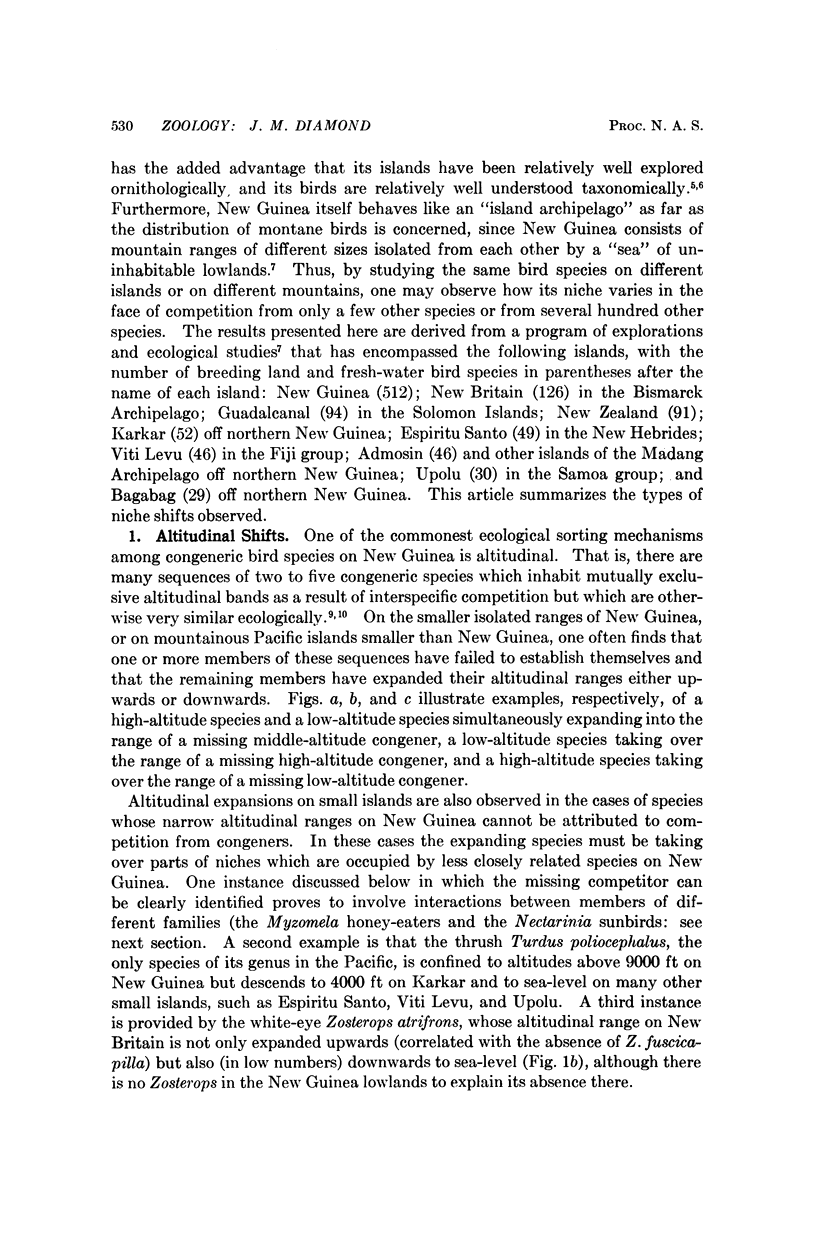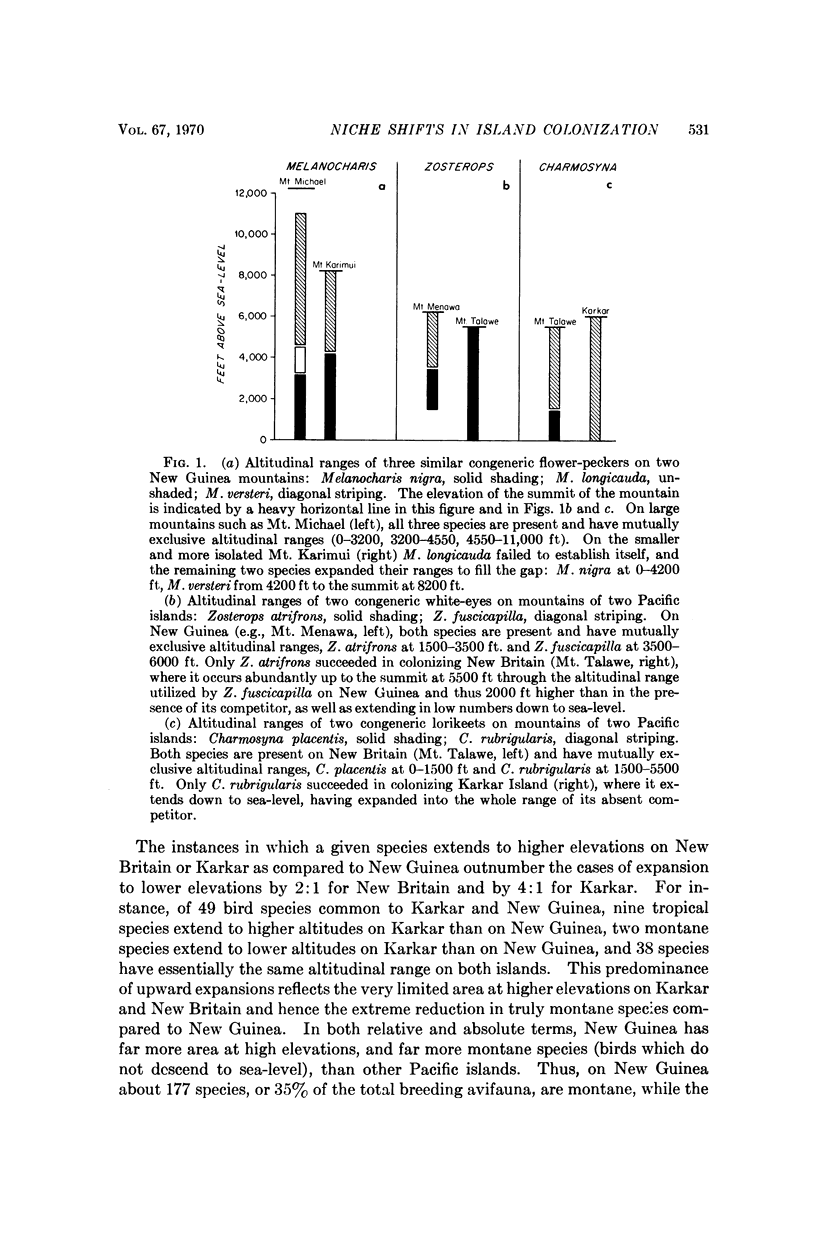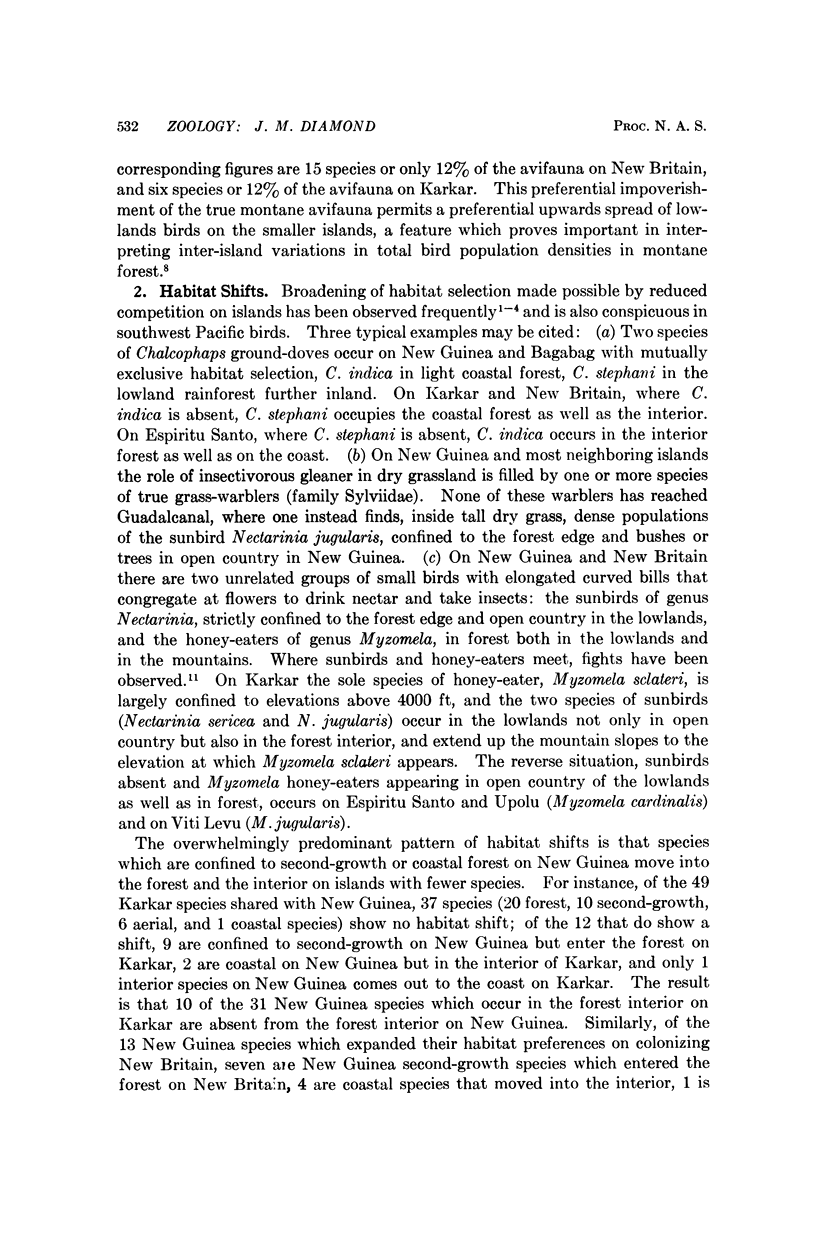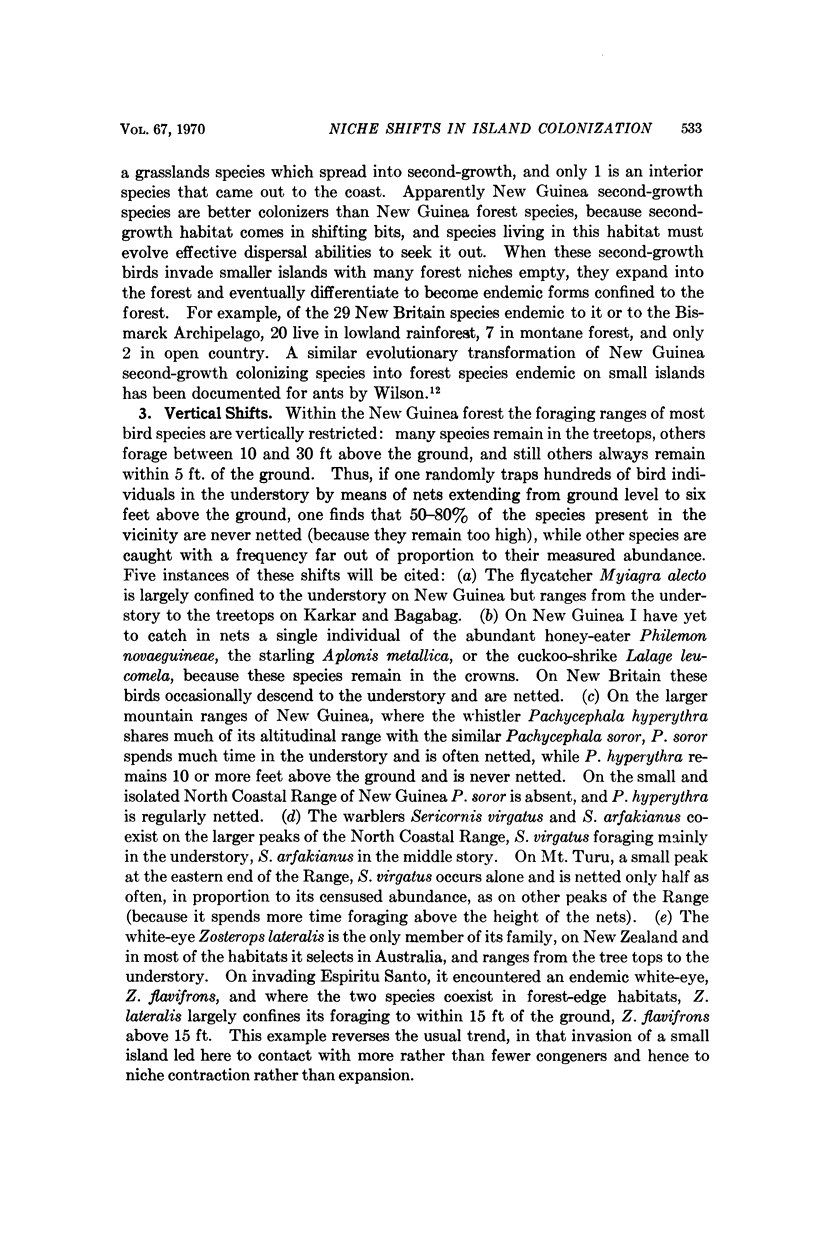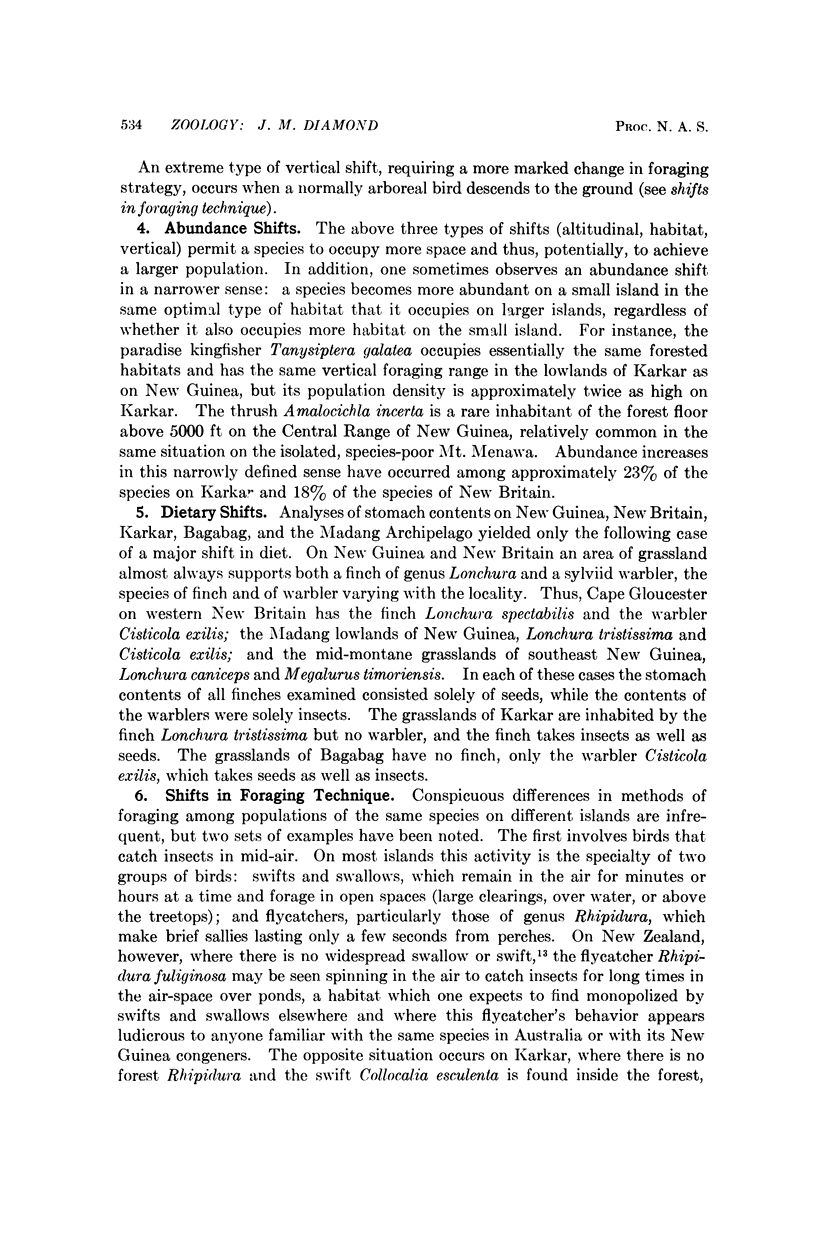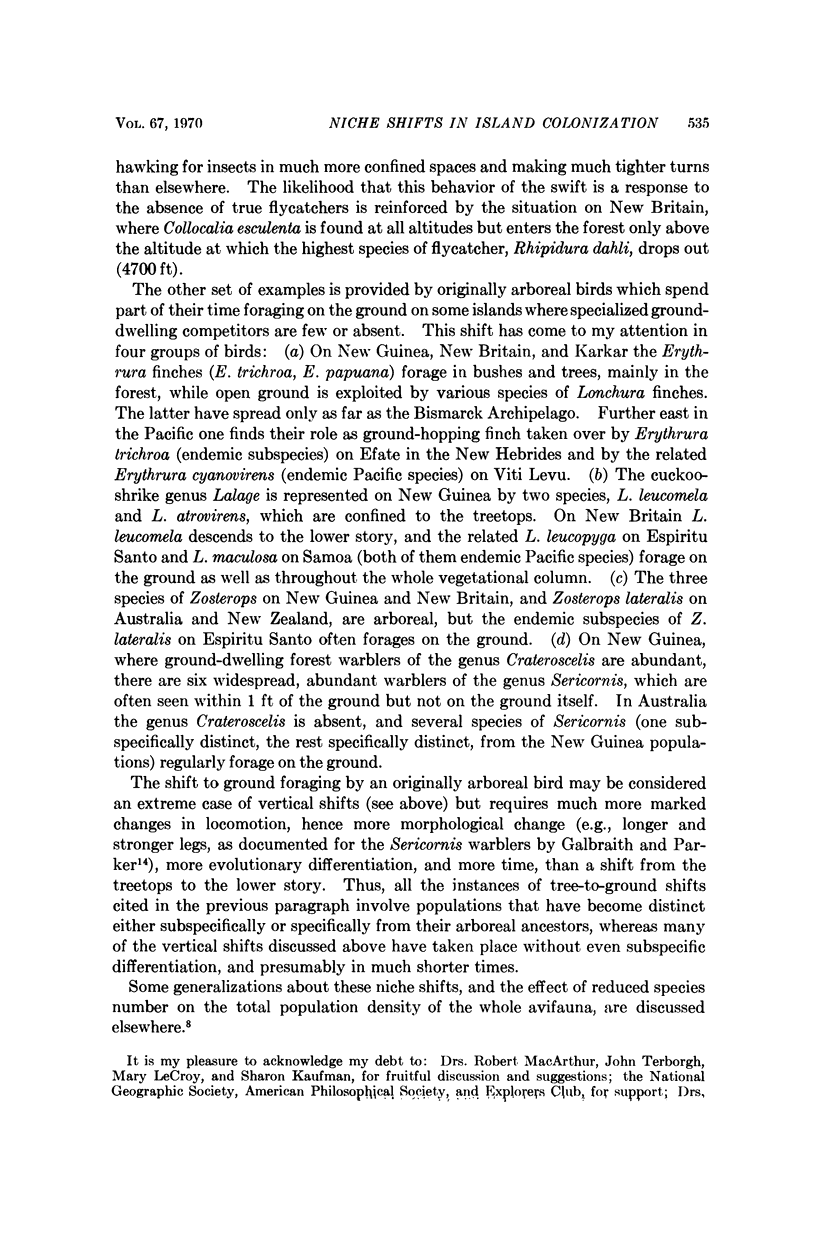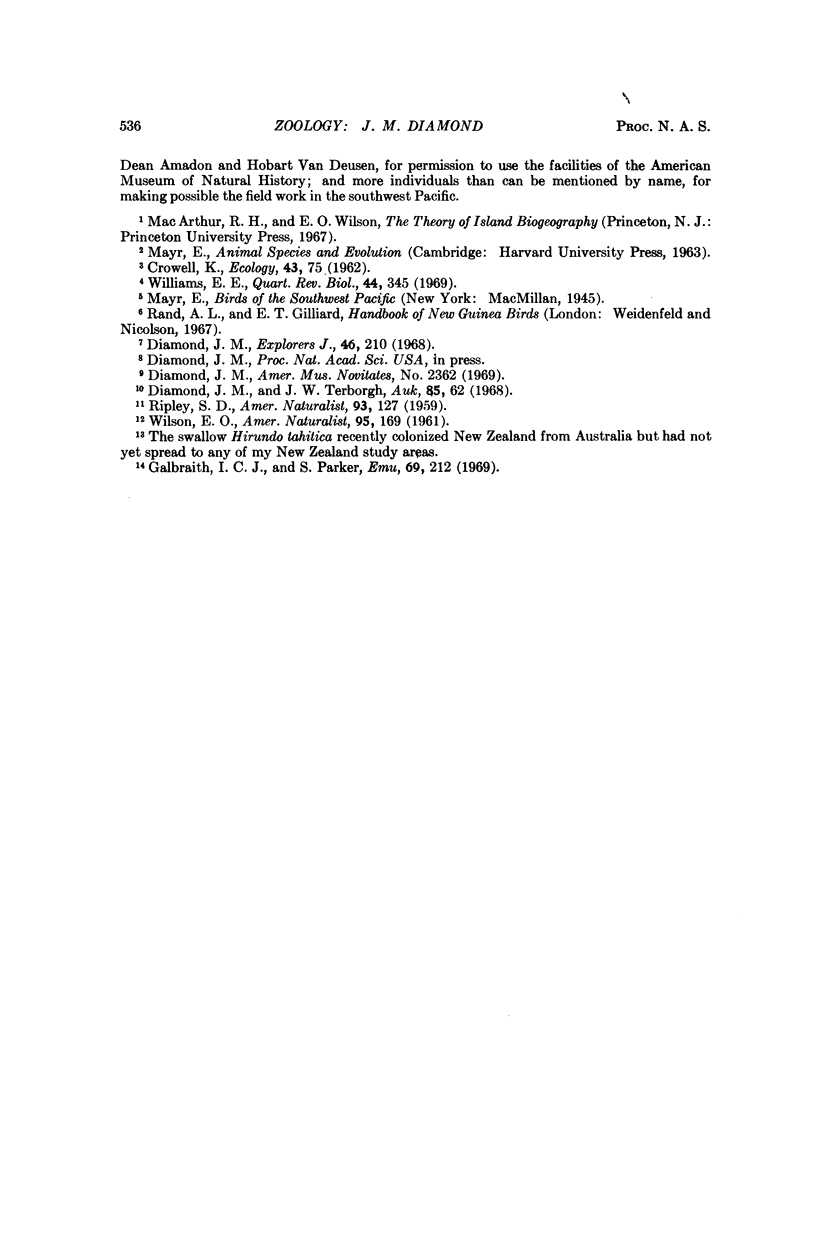Abstract
The land and fresh-water birds of the southwest Pacific islands derive mainly from New Guinea and offer a favorable situation for studying ecological consequences of island invasions. The reduction of competition on species-poor islands permits some colonizing species to expand their niches spatially, by occupying altitudinal bands, types of habitats, and/or vertical strata of the forest from which they are excluded by other species on species-rich islands. Expansions to higher altitudes, or from second-growth into forest, are especially frequent. Other colonists become more abundant in the same type of habitat preferred on New Guinea. Instances of a change in diet are rare. Changes in foraging technique are noted mainly for those colonists that have been isolated long enough to have undergone morphological divergence. Approximately half of the colonizing populations experience no niche shift.
Full text
PDF